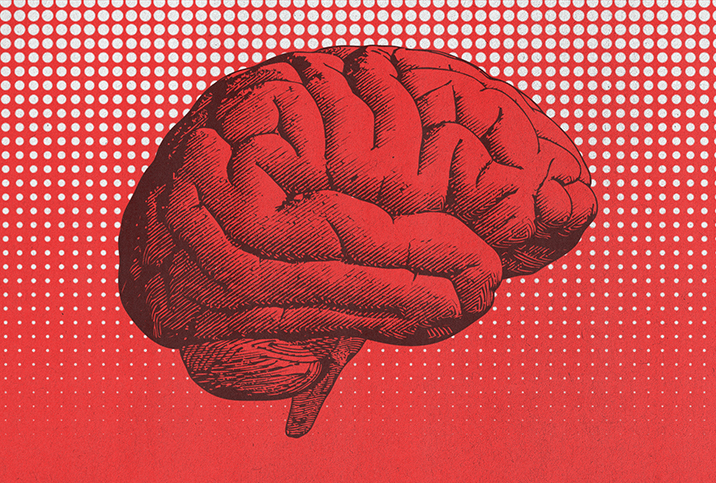What Causes Cyclical Pain During Sex?

If you experience seemingly random pain during sex and follow-up tests don't point to a cause, what's the next step? Cyclical pain is a common problem with several possible solutions.
Why do I feel pain during penetrative sex?
Painful sex is a commonly reported symptom by women worldwide. Roughly 3 in 4 women will experience pain during sex at some point in their lives, according to the American College of Obstetricians and Gynecologists (ACOG).
Some women experience painful sex occasionally or temporarily, while others experience sexual pain on a frequent and long-term basis, aka cyclical pain.
You can expect your OB-GYN to carefully review your medical history and symptoms to determine what is causing your pain.
Painful sex is linked to many reproductive conditions, such as endometriosis, ovarian cysts or fibroids. Sometimes, cyclical pain can be a symptom of a sexually transmitted infection (STI), pelvic inflammatory disease (PID) or other health condition.
Several causes can be responsible for why some women experience painful sex, but finding your specific cause begins with a visit to a healthcare provider. The first step in uncovering the source of your painful sex is to see a gynecologist for a pelvic exam and ultrasound.
Potential causes of painful sex include a handful of common conditions.
Vaginismus
"Vaginismus is a condition where a woman experiences involuntary muscle spasms in her pelvic area during intercourse, resulting in painful sex," said Himali Maniar, M.B.B.S., an OB-GYN and fertility expert at Nisha Women's Hospital & IVF Centre in Mumbai, India. "This can be caused by fear or anxiety about sexual intercourse and can have both physical and psychological components to it."
Vaginismus affects between 5 percent and 17 percent of women, according to a 2017 study. While it's true vaginismus is becoming more well-known, uncertainty and confusion remain concerning the condition due to its range of symptoms, which can vary from person to person. Figuring out the trigger that causes vaginismus may be difficult.
Vaginismus is diagnosed after a doctor conducts a physical examination and takes the patient's medical history. In instances of abuse or previous trauma, this can help the doctor to determine psychological triggers.
"After diagnosis, treatment for vaginismus usually involves a combination of psychotherapy and physical therapy to help reduce muscle spasms in the pelvic area and increase arousal during intercourse," Maniar said. "In some cases, medications may also be prescribed to help with any underlying psychological issues that could be causing vaginismus."
Yeast infection
If the area around your vagina is itchy and red, or you feel burning or stinging accompanied by discharge resembling cottage cheese, you may have a yeast infection.
Yeast infections are typically easy to treat. However, yeast infections can impact your sex life. Penetrative sex may be painful, and you could pass your infection to a partner.
Visit your doctor to confirm the presence of a yeast infection. Then, wait for the full course of treatment to finish. It generally takes a week before you can have sex after a yeast infection.
Pelvic floor issues
When there is no obvious cause for pain during sex, it could be an indication of a tight pelvic floor, said Jessica Chellsen, D.P.T., a pelvic floor specialist who focuses on helping women who experience painful sex in San Luis Obispo, California.
"Common symptoms associated with a tight pelvic floor are pain with insertion or deep penetration with sex, decreased lubrication and difficulty orgasming," Chellsen said.
Some women with a tight pelvic floor may experience symptoms that include:
- Pain with urination
- Frequent urination
- Difficulty starting their stream of urine
- Constipation
- Low back pain
- Deep hip pain
- Increased cramping and menstrual-related pain
"A tight pelvic floor contributes to pain with sex because these muscles need to be able to relax to allow for penetration," Chellsen said.
Strengthening the pelvic floor can help reduce pain during sex and make sex more enjoyable.
"To strengthen the pelvic floor, we work on activation of the pelvic floor (kegel) in various positions and with various holds. We will work on long holds and quick activations," said Chellsen, adding that this includes functional movements, such as a bridge or a squat.
Strengthening the pelvic floor takes time. You should begin to see some improvement after four to six weeks.
Hormonal changes
Hormonal imbalances due to menopause, your period or other medical conditions could lead to painful intercourse during certain times in the menstrual cycle, Maniar said.
There are a few possible explanations. It could be caused by vaginal dryness since estrogen levels decline during menopause. Some women may experience discomfort, soreness or a tight feeling at the opening of the vagina.
"Cyclical changes in hormones that occur before, during and after a period may cause women to have irritation of the urinary tract or bladder, and this can be the cause of painful sex," said Monte Swarup, M.D., an OB-GYN in the Phoenix area and the founder of the vaginal health information site Vaginal Health Hub.
Mental health
"In some cases, an underlying psychological issue such as anxiety or depression may also be contributing to painful sexual experiences," Maniar said. "Anxiety and emotional distress can lead to muscle tension in the genital area, which can lead to dyspareunia (painful sex)."
It's worth noting past trauma or abuse could play a role in cyclical pain during sex. If psychological issues are suspected as the cause of your pain during sex, your healthcare provider may recommend psychotherapy or anti-anxiety medications.
Treatment for cyclical pain during sex
The treatment for pain during sex varies from person to person since there are many potential causes. You can expect your OB-GYN to carefully review your medical history and symptoms to determine what is causing your pain, Swarup said.
Once you undergo an ultrasound exam, pelvic exam and laparoscopy, you can rule out any potential medical issues. In that case, lifestyle changes, medications or pelvic floor therapy may help reduce pain during sex.


















